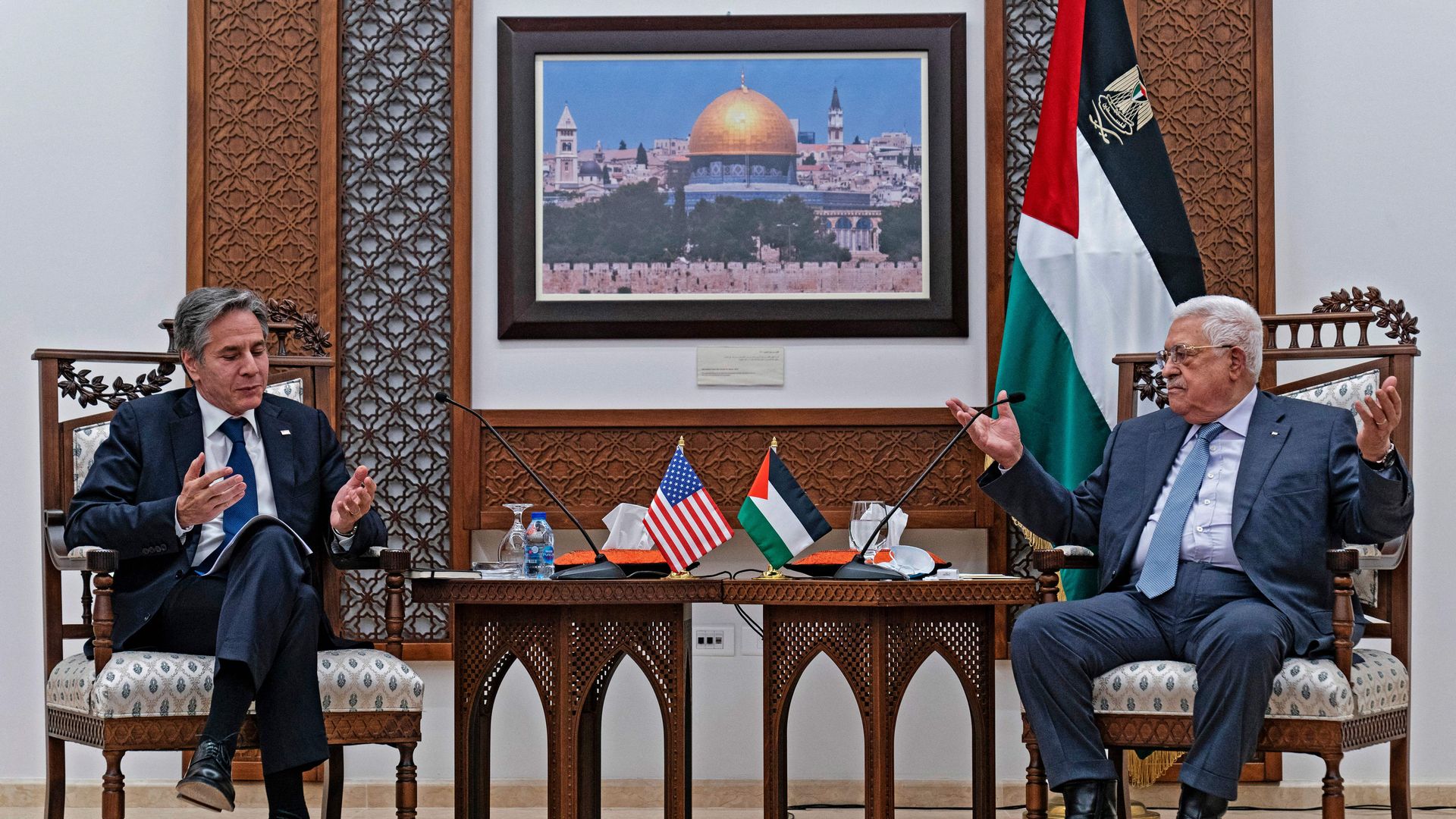Gaza crisis and Biden call make Mahmoud Abbas relevant again
Add Axios as your preferred source to
see more of our stories on Google.

Blinken (L) visits Abbas. Photo: Alex Brandon/Pool/AFP via Getty
Ramallah — The crises in Jerusalem and Gaza have made Palestinian President Mahmoud Abbas relevant again, with foreign ministers stopping by his headquarters and the phones ringing with calls from world leaders.
Why it matters: In the early days of the crisis, Abbas appeared isolated internationally and powerless domestically. The Palestinian Authority feared the tensions in Jerusalem and fighting in Gaza could morph into a new intifada in the West Bank that they would be unable to control.
- The chants of protesters in East Jerusalem and the West Bank underscored their anger with the Palestinian Authority, which was struggling to justify another postponement of elections that have now been delayed by 16 years.
- A prominent leader of Abbas' Fatah movement, Jibril Rajoub, had complained on official Palestinian TV that no Arab leader had contacted Abbas as the crisis broke out.
- "For a long period of time, the Arab interest in the Palestinian issue has significantly decreased, there was a kind of coldness," another senior Palestinian official told me.
But fairly suddenly, the crisis turned into a lifeline for Abbas.
Driving the news: In just two days, the Palestinian president received Secretary of State Tony Blinken — the first secretary of state to visit Al-Muqata'a (the presidential compound) in more than four years — along with the foreign ministers of Egypt and Jordan.
- Last week, the German foreign minister visited Ramallah, and the British foreign secretary did so on Wednesday. The list will grow in the coming days and weeks.
- Since the crisis began, Abbas has received calls from President Biden, Saudi Arabia's King Salman, UN Secretary-General António Guterres and many others.
- One Palestinian official told me Biden’s call was particularly important as it gave leaders around the world a green light to reengage with the Palestinian Authority.
The state of play: The Gaza conflict also generated renewed American interest in the Palestinian-Israeli file.
- For months, Palestinian officials have been urging the Biden administration to restart the Palestinian-Israeli negotiations that have been stalled since 2014.
- Israel’s recent elections and the delayed Palestinian vote both made it more difficult for the U.S. to launch any such effort, a Palestinian official told me.
- It was clear that Israel-Palestine was not even in Biden's top 10 priorities, the official told me. Times have changed.
What’s next: The Palestinian Authority still hopes the Biden administration will push for the resumption of peace talks.
- "They told us that we have not reached that point yet, maybe later," a Palestinian official said.
Go deeper: Blinken warns conflict could start again.
